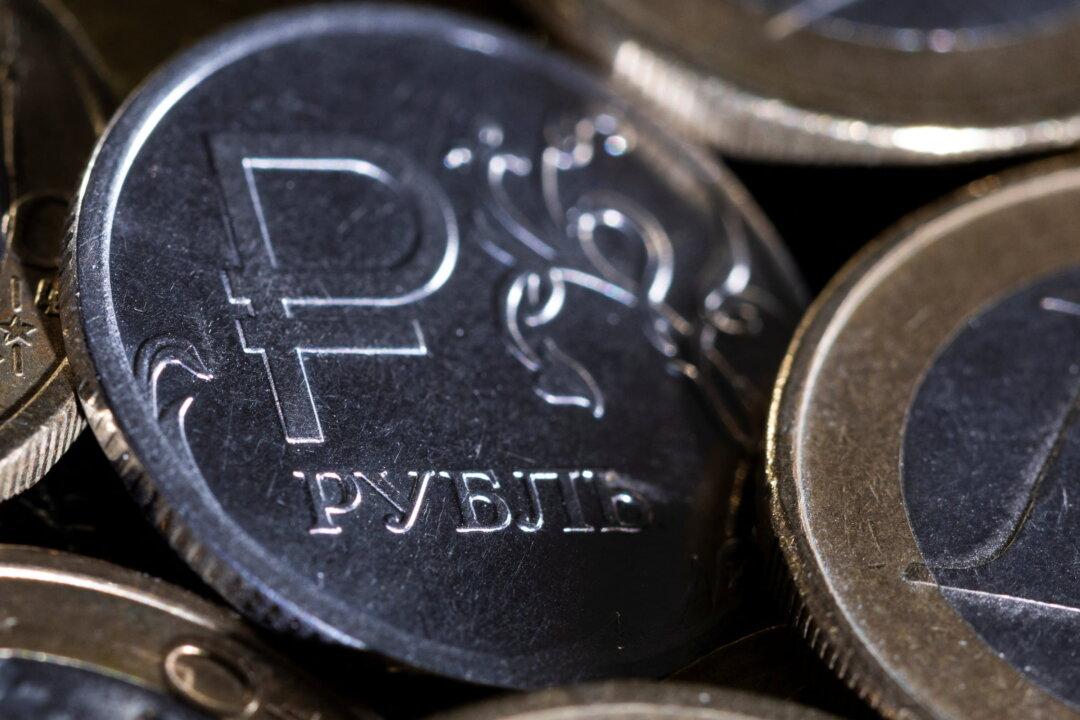The Russian ruble slumped around 10 percent against the dollar in volatile trade to a two-week low on Thursday as the central bank cut interest rates to 11 percent and suggested more cuts would follow as inflation risks subside.
The central bank cut its key rate by 300 basis points for the third time in a row, softening the cost of borrowing again after an emergency rate hike to 20 percent in late February days after Russia sent troops into Ukraine.





